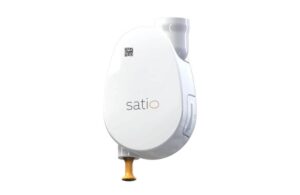
Awarded by the NIH’s Advanced Research Projects Agency for Health (ARPA-H), the contract helps the company develop SatioRx. This drug delivery device, compact and inexpensive, features disposable microneedle components for precise delivery. It remotely enables the delivery of a precise, metered dose of any liquid drug approved for transdermal delivery.
Under the contract, Boston-based Satio expects to leverage design features from its other patch-based devices. It also plans to utilize feasibility data from its manually operated transdermal delivery devices. Combining these, the company intends to develop a next-generation, remotely controllable device.
Satio says topical patches rely on drug diffusion, differing from its microneedle-based transdermal system. This technology creates minute pathways through the epidermis to enable painless, direct drug delivery into the bloodstream. Because of its ability for at-home administration, it also tackles the challenges of treatment compliance.
The company says it also could positively impact the vaccine delivery market with its transdermal technology. Transdermal delivery previously showed a lower dose requirement achieving the same level of vaccine protection with fewer side effects. It also benefits children and those afraid of needles.
At-home delivery could also play a role in expanding immunization coverage, Satio says. This would prove especially beneficial in pandemic scenarios or in places with limited access to healthcare infrastructure.
“At-home drug and vaccine delivery offer transformational potential for better outcomes, efficiency, and lowering of overall costs of healthcare,” said Namal Nawana, Satio executive chair and founder. “The SatioRx novel design incorporates proprietary technologies to remotely deliver a broad range of drugs and vaccines transdermally.”

